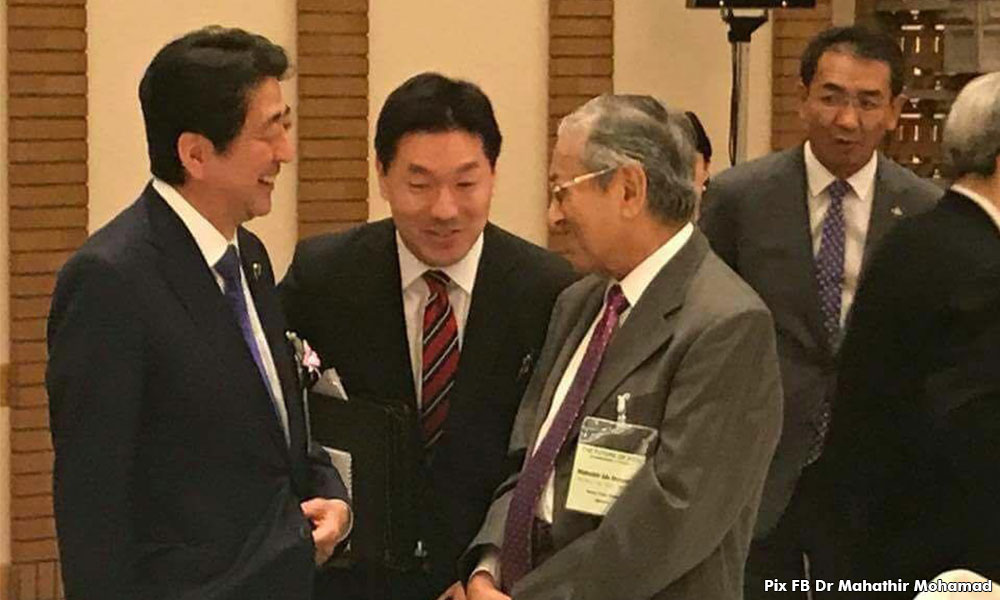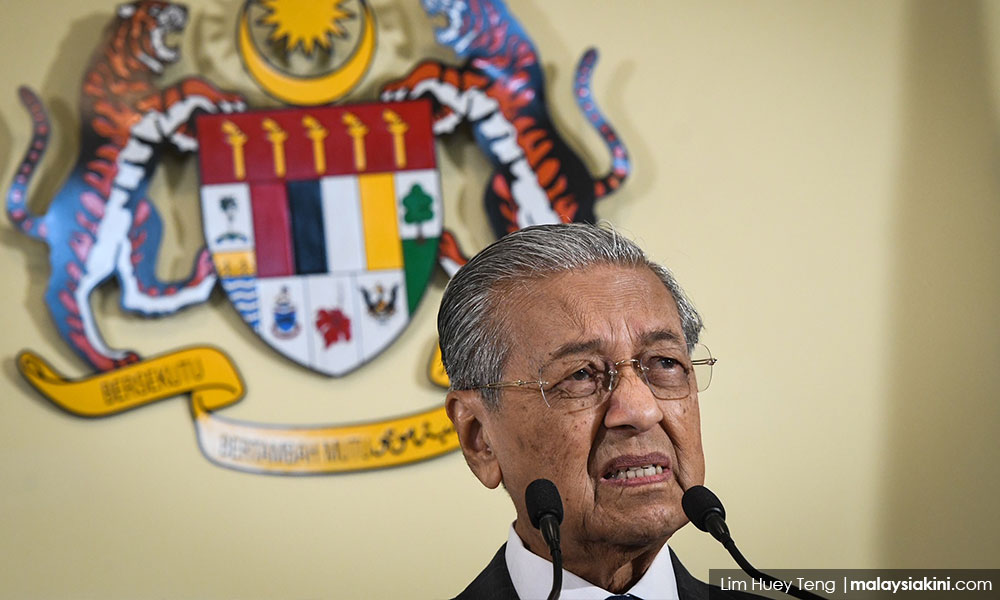
Prime Minister Dr Mahathir Mohamad is likely to take the opportunity in his upcoming trip to Japan drum up foreign investment and reduce Malaysia’s dependency on China, according to several foreign policy experts.
One of them, Universiti Malaysia Sabah associate professor of politics and international relations, Lai Yew Meng, said there may be a need for Malaysia to reduce its trade dependency on China, though a drastic change is not expected since Mahathir had assured China is not a threat.
He said many investments from China in the past had come in the form of large loans rather than actual investment.
"We just want to reduce our economic dependency on the country. Whether we like it or not, China is still our largest trading partner for the ninth consecutive year.
"Surely we want to protect this bilateral relationship and won't allow it to deteriorate and inflict a loss on us," he told Malaysiakini.
Separately, Asian Strategy and Leadership Institute (Asli) senior advisor on international affairs, Oh Ei Sun agreed that Malaysia’s focus has always been on trade and investment.
“Any party that can bring about such genuine and open economic cooperation is welcome,” he said, adding that the fact that Mahathir is one of the few heads of government attending the Nikkei Conference in Japan would only mean that he would be featured more prominently at the event.
Mahathir (photo), who had been advocating the “Look East Policy” since his previous tenure and is set to revive it, is a regular attendee at the conference even as the fourth prime minister of Malaysia and during his years in retirement.

The conference is to be held on June 11 and 12, and Mahathir is slated to deliver a keynote speech as the event’s first speaker.
Asked if the fact that Mahathir chose Japan as his first foreign destination as the seventh prime minister has any significance or a mere coincidence, Oh said it is a bit of both.
“He is indeed a regular attendee. He is also an admirer of the hardworking Japanese culture,” he noted.
Meanwhile, former ambassador Dennis Ignatius told Malaysiakini that there is a perceived need to restore balance in Malaysia’s relations with its Asian neighbours, after spending years focusing on China at the expense of other relationships.
“I think we will now begin to see a course correction. Japan has also always been a close friend and economic partner and Mahathir will no doubt want to leverage that to Malaysia’s benefit to a greater extent than before.
“Mahathir will also want to use the occasion of the Nikkei Conference to reassure foreign investors that Malaysia under the new government will remain open and welcoming to foreign investors.
“Indeed, the business environment will be even more conducive than before, given the commitment to transparency, the rule of law and the strong position against corruption,” he said.
He said China is likely to remain a major economic partner to Malaysia despite the “course correction”, but it would have to adjust to a new Malaysian government that would be more discerning of its own national interests.
“What happens going forward will now depend on how quickly and how amicably we can resolve some of the issues left over from the (former prime minister) Najib (Abdul Razak)-era.
“Given goodwill and a willingness to compromise on both sides, there is no reason why Malaysia-China relations shouldn’t quickly return to the path of rapid growth,” he said.
Malaysia Institute of Strategic and International Studies (ISIS) deputy CEO Steven CM Wong, concurred that Japan has been feeling that Malaysia had become too involved with China over the past ten years.
"Mahathir is a regular at Nikkei Conference. He has been there when he was a prime minister and continued to do so when he stepped down. That's like a routine for him.
"He has a solid network there. Now that he's back as the prime minister, the Japanese will try to impress him as to offer investments," he said. -Mkini



No comments:
Post a Comment
Note: Only a member of this blog may post a comment.